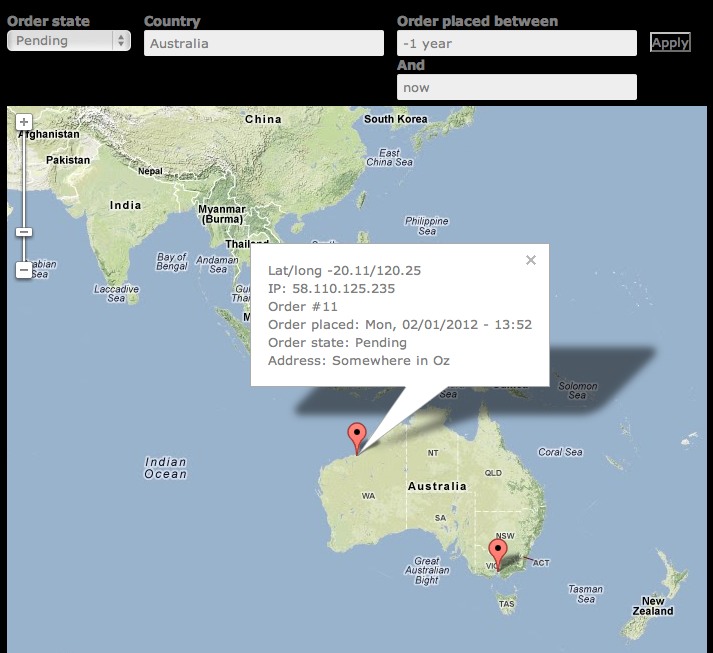Traffic. A truly sacred word for online businesses, isn’t it? It promises opportunities to sell more products, add new clients, and spread awareness about a brand. No wonder that as a rule of thumb companies think that the more people they have on their website the better. But is quantity really the key to success?
The relevance of your visitors might be even more important as some of them are likely to convert and purchase while others are just stopping by or may even have malicious intentions. One of the instruments that you can use to separate wheat from the chaff is IP geolocation.
What the technology does is detecting visitors’ IP physical geolocation — i.e., country, address, state, city, latitude, longitude, time zone, postal code, and more — based on the IP data available. This information helps professionals in several ways.

1. Access control
No business, no matter whether it sells digital or physical products, wants legal problems. Unfortunately, e-commerce companies may often be on the verge of a possible litigation when they do not think carefully about access rights to certain content and goods for international users. For instance, visitors may purchase your products with the goal of reselling them later in their country and making a profit, potentially violating local regulations and intellectual property laws and bypassing agreements with national resellers.
By looking at IP geolocation, you can prevent certain visitors from entering your website or redirect them to another version of the page. Doing so also ensures you avoid denying the access to those customers who actually have rights to view or purchase content or goods in their area.
2. Visitor experience
Nothing is quite as frustrating as constantly having to change settings or reconfirm personal information on a website before proceeding with browsing and shopping. This is not only annoying and time-consuming, it might also be what drives visitors away to competitors’ pages. It’s not a rocket science: the less extra steps guests need to go through, the better for your online business.
Accurate IP geolocation is an important part of effective customer retention and conversion. It can contribute to presenting a website where currency, language, and other locally related settings are automatically selected correctly — creating a smooth and seamless online user experience and encouraging visitors to stay.

3. Personalized offers
People want to feel special, especially as consumers. That is why personal attention and targeted marketing efforts are so valuable. Users don’t want to be offered products that are not available for purchase in their country. Or they do not want to see digital ads about services provided halfway across the globe.
Through IP geolocation, you can avoid such unpleasant moments and capture visitors’ interest by providing them with locally relevant content. This helps achieve a few goals such as increasing the time visitors stay on the page and boosting sales.
4. Market research
A lot has been said about the importance of getting to know your target customers better. Every online business wants to find out who is more likely to buy from them and where they are from.

IP geolocation data allows to understand user needs better and contributes to building comprehensive customer profiles. For example, tracking user location is useful to review conversions and total purchases from a certain state, region, or country, in proportion to other locations.
5. Fraud protection
Fraudulent activities frequently take place online. Some of the red flags you might want to look for include getting multiple orders from various locations over a short period of time or the usage of anonymous IPs — indicating that malicious outsiders might have impersonated legitimate customers and used their credit card details.
Looking into IP geolocation can help prevent fraud. For instance, such data makes it possible to compare the delivery and the physical address of a buyer and identify inconsistencies like a suspiciously long distance between the two. Additionally, it enables to protect users by asking them to reconfirm their personal details should irregularities be spotted.

All in all, IP geolocation provides insights about your visitors and can be used to protect your business from legal issues and fraud and deliver a better customer experience.
About the Author:
 Jonathan Zhang is the founder and CEO of Threat Intelligence Platform (TIP) — a data, tool, and API provider that specializes in automated threat detection, security analysis and threat intelligence solutions for Fortune 1000 and cyber-security companies. TIP is part of the Whois API Inc. family which is a trusted intelligence vendor by over 50,000 clients.
Jonathan Zhang is the founder and CEO of Threat Intelligence Platform (TIP) — a data, tool, and API provider that specializes in automated threat detection, security analysis and threat intelligence solutions for Fortune 1000 and cyber-security companies. TIP is part of the Whois API Inc. family which is a trusted intelligence vendor by over 50,000 clients.
